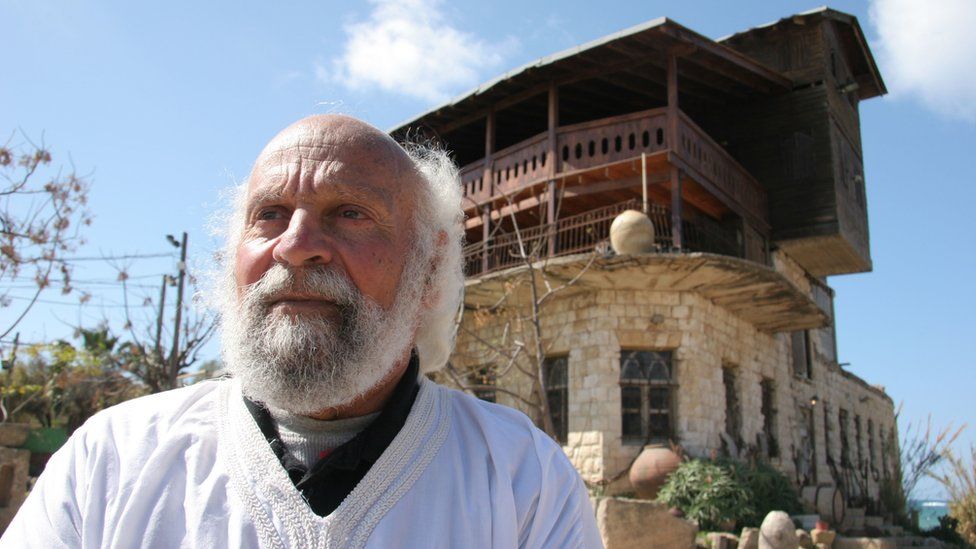Micronation founder Eli Avivi dies in Israel
- Published

One of the Middle East's longest-serving "rulers" has died aged 88 but Eli Avivi was no ordinary president.
He led the micronation of Achzivland - with its population of two - for almost half a century.
Nestled in the north of Israel near the border with Lebanon, the tiny "nation" attracted hippies and celebrities alike, including Sophia Loren.
Despite having no international recognition, it has its own flag (a mermaid) and national anthem (the sea).
Avivi is survived by his wife and Achzivland's only other "citizen", Rina, 71, who confirmed his death in the early hours of Wednesday.
His sister told Israeli news site Ynet news he had been suffering from severe pneumonia.
Who was Eli Avivi?
Born in Persia, he came to the British Mandate of Palestine when he was two.
He joined the clandestine Jewish navy, the Palyam, aged 15, and fought first against the British Army and then Arab forces during the 1948 war.
What would later become Achzivland was a Palestinian fishing village known as al-Zeeb, whose residents fled when it was conquered in 1948.
Avivi came across the site four years later and lived among the dilapidated buildings, making a living selling fish to a nearby kibbutz. He was later joined by Rina, whom he married.
The couple's ongoing troubles with the Israeli state began in the 1960s, when the government decided to turn the area into a national park and sent bulldozers to destroy the buildings.
The situation escalated when the authorities erected a fence around the site, blocking the Avivis' access to the sea. In protest, Eli and his wife ripped up their passports and declared independence from Israel in 1971.
Their brief arrest and the subsequent court case against them propelled them - and Achzivland - to international fame.
The couple eventually reached an agreement with the Israeli authorities to pay for access to the sea, and created a "national" museum full of antiquities. They created their own passports and would stamp those of foreign visitors to their 1.4-hectare (3.5-acre) site.
In the years that followed, travellers from across the world - including many hippies - came to visit one of the world's smallest unrecognised states, drawn by its laidback philosophy.
What is Achzivland's future?
It is unclear what will happen without its president-for-life.
In an interview with the BBC in 2015, Avivi said he did not think he would have many more years left to live. He said he hoped Rina would remain at the site but that it was up to her to decide.
She has expressed her wish for Achzivland to become a permanent memorial to her husband, whom she described as "the best president ever".
- Published3 October 2017
- Published15 February 2017